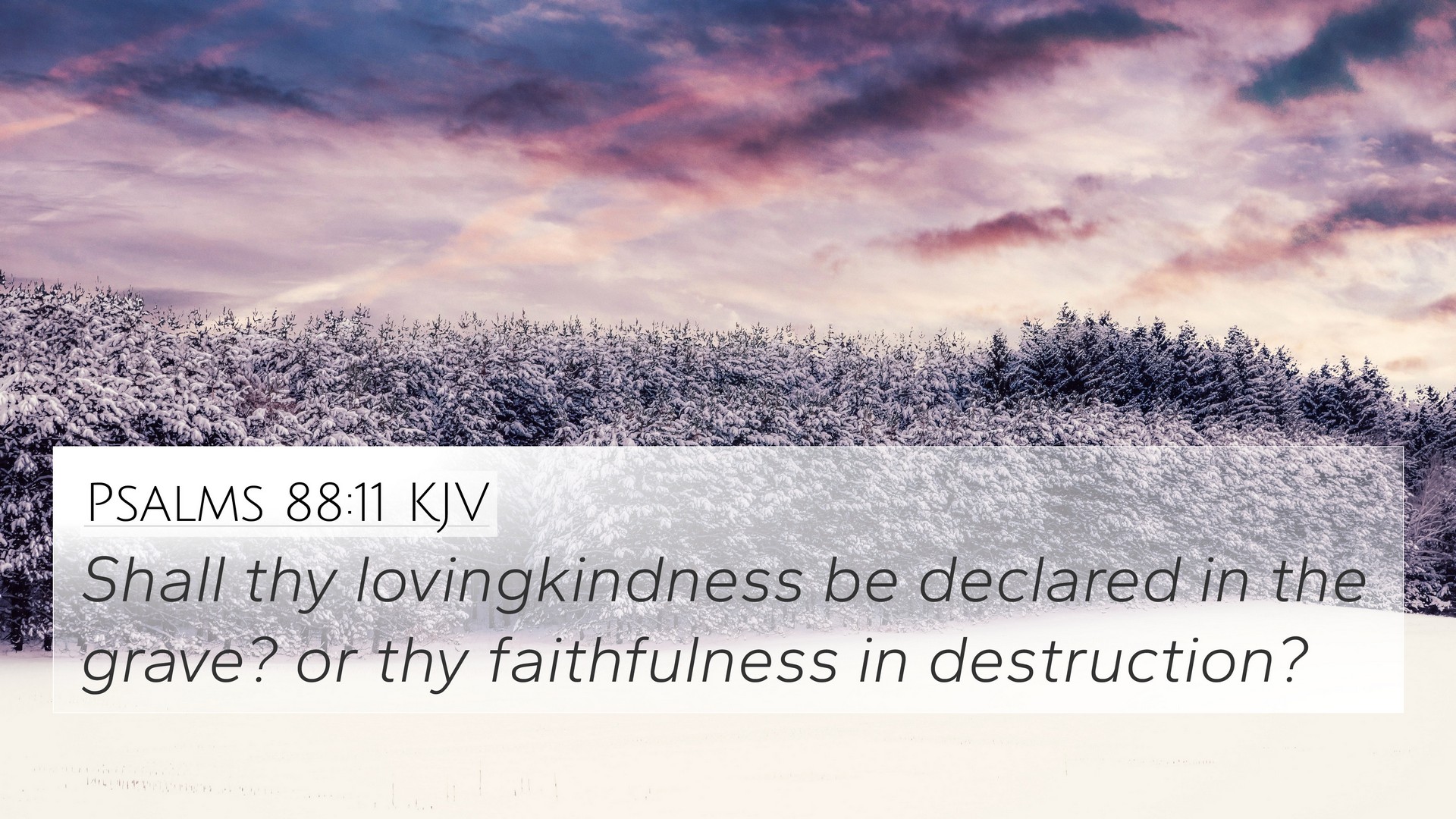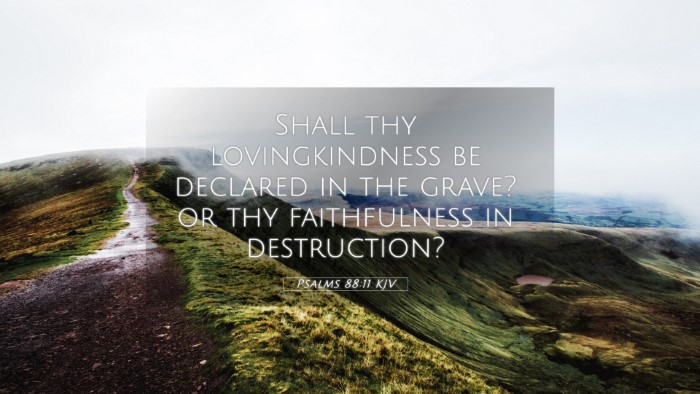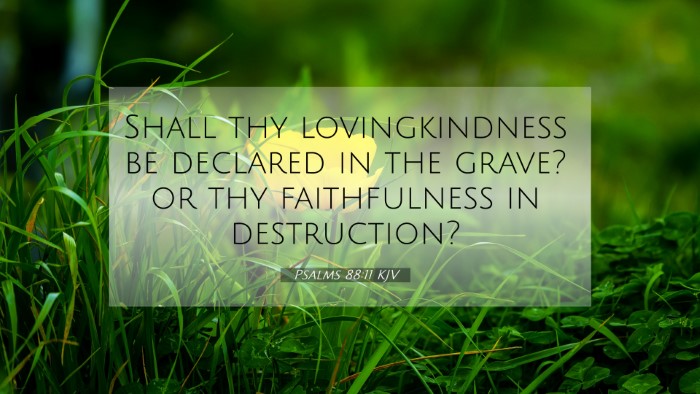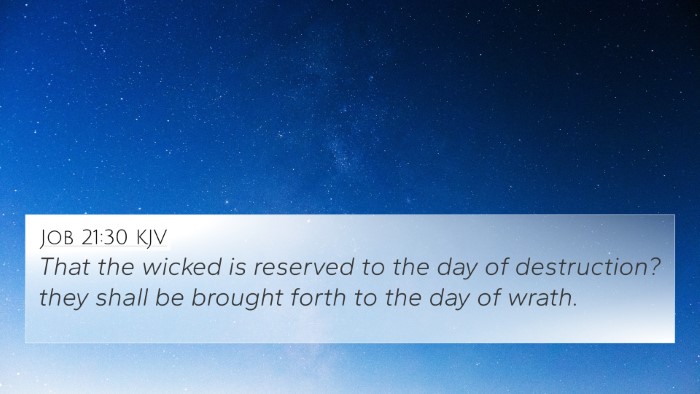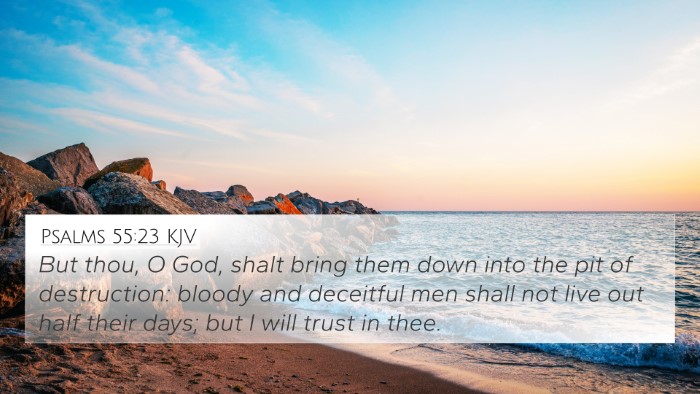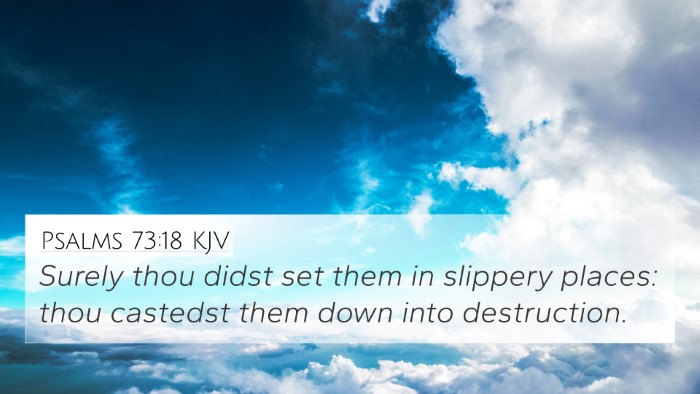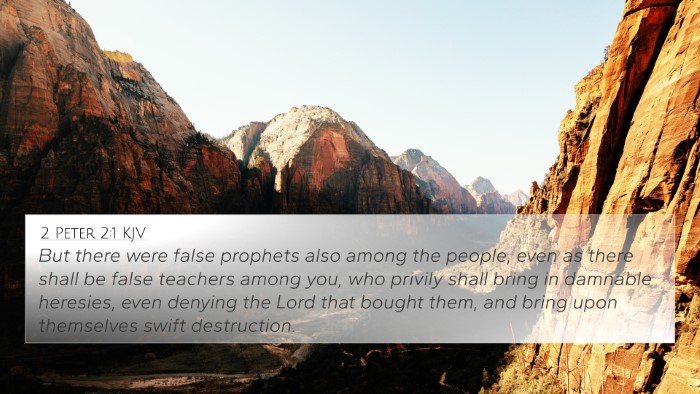Psalms 88:11 - Summary of Meaning and Interpretations
Psalms 88:11 states: "Will thy lovingkindness be declared in the grave? or thy faithfulness in destruction?" This verse expresses a profound existential question regarding the nature of God's love and faithfulness in the face of death and despair. Various public domain commentaries provide rich insights into its meaning and implications.
Spiritual Reflection on Psalms 88:11
The psalmist is grappling with the depths of human suffering and the fear of being forgotten. This verse particularly raises the question of whether the attributes of God—His lovingkindness and faithfulness—can manifest beyond the grave or in the midst of destruction. The emotional plea illustrates a troubled soul seeking assurance of God’s goodness in times of overwhelming despair.
Commentary Insights
-
Matthew Henry:
Henry emphasizes the theme of helplessness in despair. He indicates that the psalmist feels abandoned and questions whether God's mercies can extend to a life cut off by death. His reflections reveal the human struggle with mortality and a craving for divine remembrance in times of darkness.
-
Albert Barnes:
Barnes points out that the verse is a rhetorical question, highlighting the psalmist's doubt about God's working in death. He elaborates on how the grave represents a cessation of earthly life, and thus the psalmist yearns for hope that God's attributes persist even in hopeless situations.
-
Adam Clarke:
Clarke interprets this verse as an expression of extreme despondency. He provides context on the implications of life and death from a biblical perspective, arguing that the psalmist’s lament is one that resonates with all who face mortality and wish for God's presence even in death.
Connections to Other Bible Verses
Understanding Psalms 88:11 can be deepened through cross-referencing other biblical texts that similarly explore themes of divine faithfulness, love amidst despair, and the human confrontation with mortality. Here are some related verses:
- Psalms 30:9: "What profit is there in my blood, when I go down to the pit? Shall the dust praise thee? Shall it declare thy truth?"
- Psalms 116:3: "The sorrows of death compassed me, and the pains of hell got hold upon me: I found trouble and sorrow."
- Isaiah 38:18: "For the grave cannot praise thee, death cannot celebrate thee: they that go down into the pit cannot hope for thy truth."
- John 11:25-26: "Jesus said unto her, I am the resurrection, and the life: he that believeth in me, though he were dead, yet shall he live."
- Romans 8:38-39: "For I am persuaded, that neither death, nor life, nor angels, nor principalities, nor powers, nor things present, nor things to come, shall be able to separate us from the love of God, which is in Christ Jesus our Lord."
- 1 Corinthians 15:22: "For as in Adam all die, even so in Christ shall all be made alive."
- Revelation 21:4: "And God shall wipe away all tears from their eyes; and there shall be no more death, neither sorrow, nor crying, neither shall there be any more pain: for the former things are passed away."
Thematic Analysis
The themes found in Psalms 88:11 can be mirrored across various books of the Bible. The existential nature of the psalmist's lament is pivotal in understanding the broader biblical narrative that speaks to suffering, hope, and the assurance of God's faithful engagement with humanity, even in their darkest hours. Recognizing these themes can enhance one’s study of scriptures and contribute to a comprehensive understanding of biblical teachings concerning life, death, and divine love.
Conclusion
In examining Psalms 88:11 alongside insights from noted commentaries and related scripture, we gain a deeper understanding of the tension between despair and faith. The verse serves as a poignant reminder of the longing for divine kindness and assurance amid life’s most challenging moments. For scholars and laypersons alike, cross-referencing offers essential tools for deeper biblical study and understanding the connections and themes threaded throughout Scripture.
